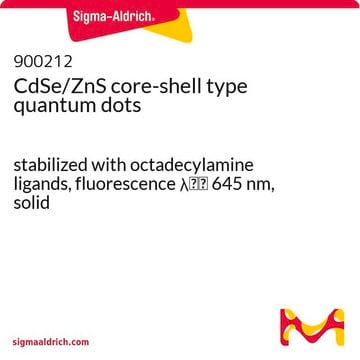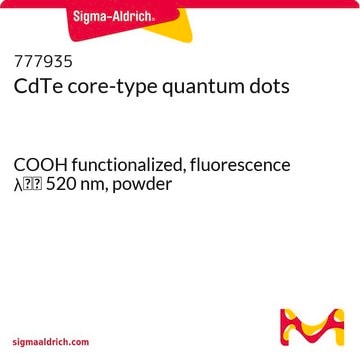244600
Cadmium selenide
-325 Mesh particle size, 99.99% trace metals basis, electronic grade
About This Item
Recommended Products
grade
electronic grade
Quality Level
Assay
99.99% trace metals basis
form
powder
density
5.81 g/mL at 25 °C (lit.)
SMILES string
[Se]=[Cd]
InChI
1S/Cd.Se
InChI key
AQCDIIAORKRFCD-UHFFFAOYSA-N
Looking for similar products? Visit Product Comparison Guide
Related Categories
General description
Application
Packaging
Signal Word
Danger
Hazard Statements
Precautionary Statements
Hazard Classifications
Acute Tox. 3 Inhalation - Acute Tox. 3 Oral - Acute Tox. 4 Dermal - Aquatic Acute 1 - Aquatic Chronic 1 - STOT RE 2 Oral
Target Organs
Kidney,Bone
Storage Class Code
6.1C - Combustible acute toxic Cat.3 / toxic compounds or compounds which causing chronic effects
WGK
WGK 3
Flash Point(F)
Not applicable
Flash Point(C)
Not applicable
Personal Protective Equipment
Choose from one of the most recent versions:
Already Own This Product?
Find documentation for the products that you have recently purchased in the Document Library.
Our team of scientists has experience in all areas of research including Life Science, Material Science, Chemical Synthesis, Chromatography, Analytical and many others.
Contact Technical Service










